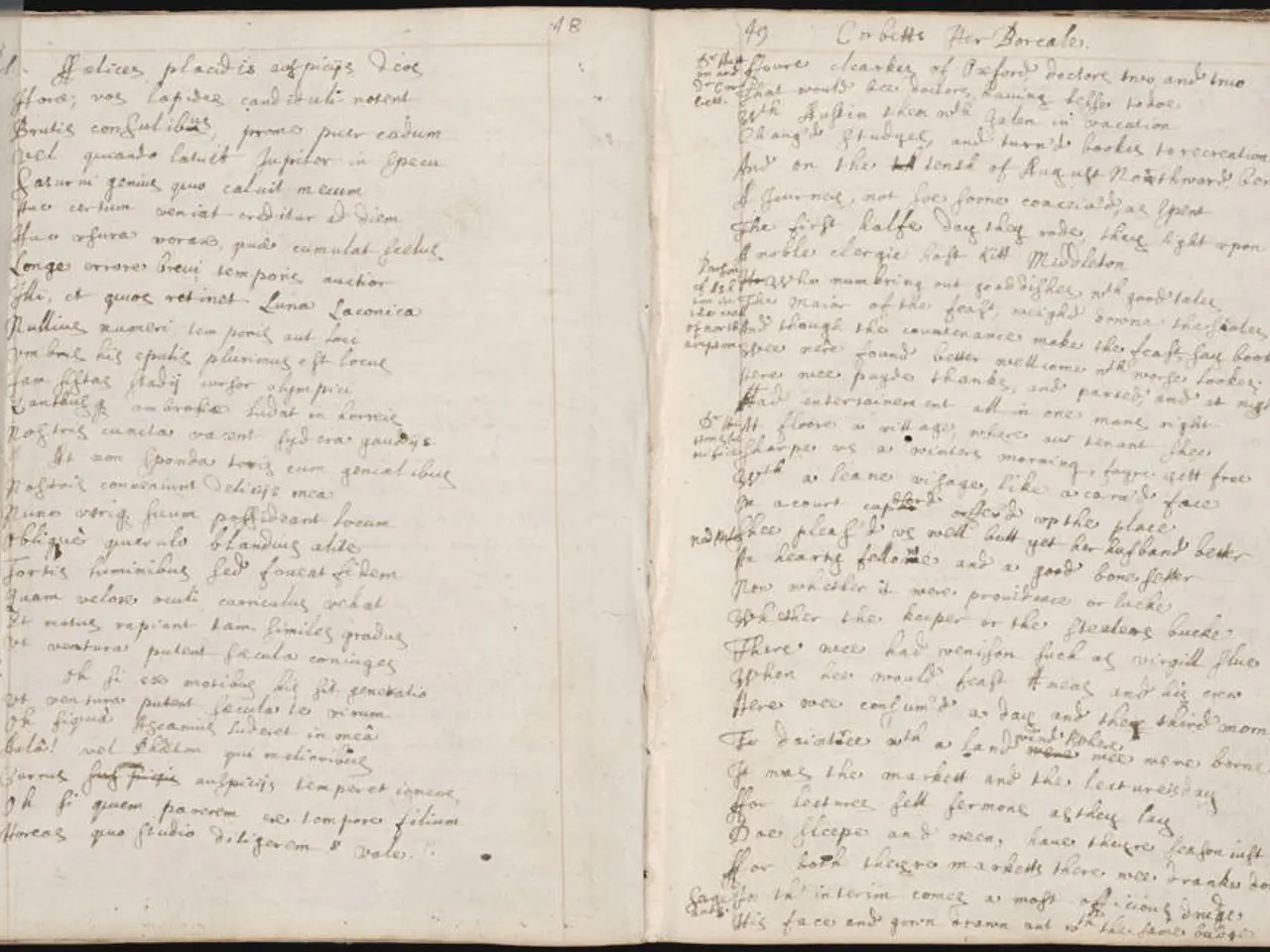Guide for Creating a Literary Agent Query Letter
In the world of publishing, landing a literary agent can be a significant milestone for any aspiring author. This is a lesson that Canadian multi-time best-selling author, Kelly D. Smith, has learned firsthand.
Smith, who was homeschooled her entire life and now spends her free time blogging, reading, cooking, or playing outside with her dog, recently queried an agent for her book, "To Catch a Wolf". This book, the first in a fantasy/romance series with a romance/erotica subgenre, was meticulously polished over two weeks before being sent out.
Smith's journey began after receiving multiple rejections from publishers. She decided to take a different approach and query an agent, a decision she now emphasizes as crucial. Her query letter, a one-page sales pitch, was carefully crafted to stand out.
The letter opened with a reference to a specific book represented by the agent, immediately demonstrating Smith's awareness of the agent's interests. She then went on to craft a compelling hook and synopsis, introducing the protagonist, central disruption, stakes, and a hint of the journey without spoilers or the ending.
Smith also used comparables wisely, citing recent and relevant comp titles to demonstrate where her book fits in the market. She included a brief author bio, describing her publishing credits and expertise, and personalized her query by referencing something specific about the agent.
But Smith's query wasn't just a generic template. She injected voice into her letter, giving a sense of the book's tone and unique voice, and ensured her query made the agent care about her protagonist and want to read more.
Smith's advice for those looking to query agents is straightforward. Research and select agents carefully, ensuring they represent your genre and have a good track record. Write a strong, concise query letter that communicates both the story and author credibility clearly and succinctly. personalize your query, and avoid common mistakes.
Smith found her agent through WritersDigest, after trying several other websites and books. She was advised by WritersDigest's Guide To Literary Agents to send her manuscript to more than one agent. Given that fantasy is one of the agent's bread-and-butter genres, it seems the strategy paid off.
In summary, the best queries are personalized, sharply written, genre-appropriate, emotionally engaging pitches that communicate both the story and author credibility clearly and succinctly. Taking the time to refine your query letter and target the right agents significantly improves your chances of signing with a literary agent.
Beta readers in her network provided valuable feedback to enhance the story and writing style of "To Catch a Wolf", contributing to Smith's career development as an author. In her education-and-self-development journey, Smith laboriously managed to transition from self-published author to traditionally published one, demonstrating the importance of beta readers in her growth as a writer and her pursuit of aspiring education and career development within the world of publishing.




